Matthieu Debliqui (aka Subjex and Bedroom Research label-operator) dissects the inner-workings of this multifaceted experimental electronic imprint—now in its 10th year—and offers listeners/fans some insight about where it’s been and where it’s headed.
 Igloo Magazine :: When did Bedroom Research start up and what was your inspiration?
Igloo Magazine :: When did Bedroom Research start up and what was your inspiration?
Matthieu Debliqui (Subjex) / Bedroom Research :: Bedroom Research started in 2002 but not really as a label at first. For my studies I was doing an internship in a small local label (Tot-Al, in north of France) and during this I’ve driven a compilation project where I did want to put some of the local talents I freshly met when I moved to Lille, and I found the name Bedroom Research as I thought it is a pretty accurate description of what was/is going on. The project had the great side effect of triggering a wish for more of that kind of actions in the head of the artists involved (Deework, Fletch, Yogo Onomotobok and myself, Subjex, mainly), DIY is kinda exciting. So we created a non-profit structure that aims at releasing music, organizing gigs, etc. in 2003. Then great “recruitment” happened and people like Tep, Alfred Toc, Orange Zebre, Dziski to name a few, were the first to join the collective.
What we wanted is a platform where we could put out our productions with all the possible freedom and flexibility, that’s why we straight away opted for CreativeCommons and Free online distribution. We wanted people to have access to the kind of experimental and freestyle music we love in the most easy way possible. Witouth some of the bottlenecks of regular distribution and promotion. The name Bedroom Research came as a pretty obvious idea as it was clearly what we were all doing—roommates living in cheap small rooms with a DAW and a little bed threw in one corner of the room…we were making sound all day and night as that was finally the only thing we could probably afford at the time. ;)
Igloo :: Who were some of your initial artist relations and did your location help or hinder progress?
BR :: It all started at the same time, while we were creating and developing BR I personally got hooked by Mike Paradinas for a release on Planet Mu. Somia and Schematic were proposing me things too + the resulting bookings… and I believe that helped a bit in giving a bit more credentials and focus on the label: that means more exposure, more demos, a wider network, etc. Even if of course the best advertisement is coming from the quality of the releases themselves I think.
Living in Lille makes our position quite central between Paris, London and Brussels. But TBH I reckon the “internet” as more importance in the development of the label than its geographical situation, even if the artists that shaped the identity of the label like Tep, Fletch, Deework, Alfred Toc, Orange Zebre,, etc are all from Lille.
Igloo :: What were some of the challenges (if any) starting up a label? …and how did you envision the label to stand apart?
BR :: The Biggest one is maybe to find an identity/proper aesthetic, especially when like us you ‘wanna still release a broad range of styles. Then getting it known and recognized: exposure, having the music spread by people loving it. So it was how a very small collective from a small french city can be noticed by people in Japan or the USA for example? Our answer was: diffuse a wide spectrum of uncompromising music with a strong identity and do it for free, use internet and all the free resources available.
From day one ’till now we’ve been functioning on our own with no money: not a single subside, no records sales (until last year), but most of all: no personal money to inject. It’s pretty common to see label financed by someone in their crew having money in the bank…I would have loved to… but that’s not where i’m coming from (too bad!!). So we tried to make something out of nothing.
We exist mainly by and for our audience and artists, nothing too exotic here I guess. The label is not the “star,” it’s just a medium and a sort of indication, like a red label on quality food products: you may choose to trust it but at the end you buy the tasty food, not the sticker.
No “money” involved is I guess what makes the label still alive now paradoxically as we never had a risk of going bankrupt. It’s not that money is bad, at all, it’s just we never had some and that we wanted to try an alternative model. By the way, I’d like to highlight the totally amazing and encouraging support we have from our audience, for example with donations. I feel very proud of that, when a free release receive 10€ of donation from a single fan, you really feel like you are touching people with your work especially as we don’t have the marketing weapons to impose fame or recognition. So BIG UP to the supporting fans, I love you and your help is immense!!
The drawback of this system is: it probably slowed down our growth as even now some have a hard time to understand you can make valuable work for free. It’s a cognitive bias—people thinking inside the box, probably years of propaganda put in some minds the idea that free—no value, it’s kind of stupid. I have a sarcastic laugh when someone says things like “digital only label is not a real label.” It’s narrow-minded and probably a bit snobby too. The argument of “it’s free so less efforts are put in” is ridiculous or maybe a bit too broad of a generalization. There’s still biased minds looking down on netlabel nowadays despite all the great job done by some (FreshYo!, Acroplane, Proot!, Phonocake, Centrifuge, DaHeardIt, UpitUp, Peppermill, OpenMusic to name a very very few). There’s already millions of digital only releases that beats to death stuff on vinyl with deluxe packaging. I’m here to release music not objects. Of course releasing some physical goods is top and I’ll probably do it with the label when I got the time and money (K7, vinyls or whatever). I do love vinyl, but music is first and I clearly don’t understand the hierarchy made between the two. Again this is quite conservative. The medium is secondary. Especially when you realize (with the math proving it) that a high quality (read lossless) digital
format like FLAC is the closer a result from the musical source and artist’s intentions that you can get! But it’s often in crisis periods that you can observe more “identity seeking” or “conservatism.” To me the music has to speak by itself independently of “who,” “how” or “when.”
As for exposure, you know the topic I bet: Not every magazines are reviewing free releases or stuff that is not pushed to them via professional promo campaigns, or for the fore-mentioned reasons or because it seems like clicking “download” is a painstaking task, I don’t really know. I reckon only a few do really dig into the scenes to find new stuff to review, bless them! Pinning a poster of John Peel in a room is not enough to help pushing the boundaries.
But I’ll stop my little rant as this is all about love and challenging music isn’t it?
Igloo :: What is your motivation in keeping the label moving forward into the next decade?
BR :: Music, releasing fresh sounds , fresh names. Discoveries. I love when artists are in that upward movement when their style and technique and experience are growing and evolving: I love to feel this and that’s why I’m always focusing on bringing new names or people that most of the time only made a couple of confidential releases. I even love some of the imperfections that may sometimes imply in the production. Perspective of evolutions are very exciting. BR is not about fashionable products, nor trends. I mean it’s far more interesting to hear a fresh tune by an enthusiast and inspired unknown peep that is rising, than desperately trying to find freshness or radicality in a fading out or stagnating big name’s tune; or in a production that is so perfect and formated that its soul is gone. There’s literally a scary number of talents around, the amount of producers nowadays is ridiculous and I think it makes the job of scouting for new talents even more mandatory. Of course there’s a lot of more established artists I’d die to work with and I’ll work on that too. I’ve never seen that much good music all around.
Igloo :: Tell us more about how you (and your staff?) take the label’s “sound” to the listeners and fans. Distribution, campaigns, live shows, word of mouth etc.
BR :: Well the usual thing: social networks, our website, word of mouth, mailing lists… YOUR REVIEWS! One of the best way to help is to review our releases. Bloggers bloggin it, DJ’ss dj’ing it, and people pushing to their friends and stuff like this. We exist mainly by and for our audience and artists, nothing too exotic here I guess. The label is not the “star,” it’s just a medium and a sort of indication, like a red label on quality food products: you may choose to trust it but at the end you buy the tasty food, not the sticker. I just want people to keep in mind they just have to regularly check on Bedroom Research if they need fresh and tasty stuff.
For more information about Bedroom Research, visit their website at bedroomresearch.com.







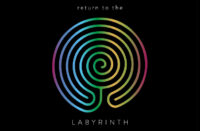



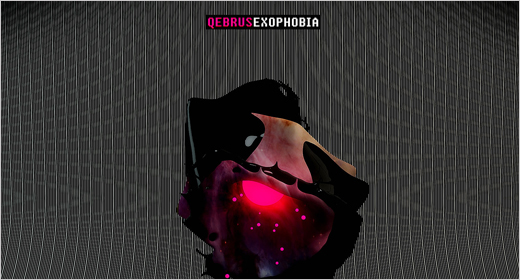
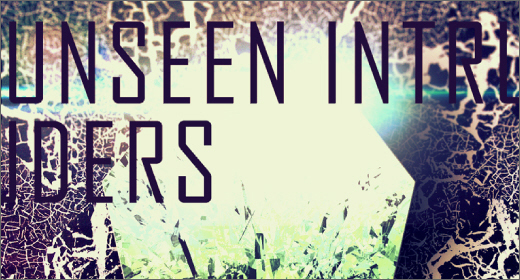
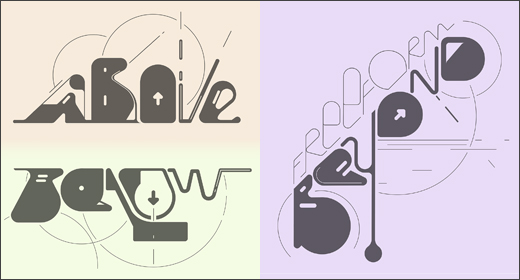
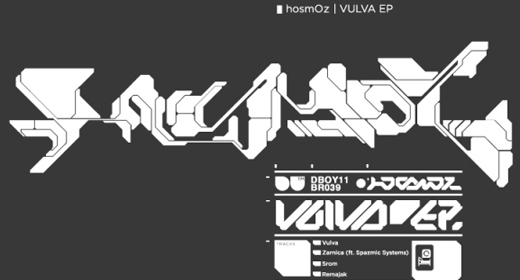
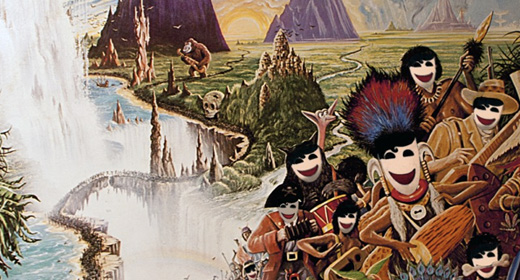



![Hasbeen :: Bunker Symphonies II (Clean Error) — [concise]](https://igloomag.com/wp/wp-content/uploads/2025/04/hasbeen-bunker-symphonies-ii_feat-75x75.jpg)
![Extrawelt :: AE-13 (Adepta Editions) — [concise]](https://igloomag.com/wp/wp-content/uploads/2025/04/extrawelt-ae-13_v_feat-75x75.jpg)
![Beyond the Black Hole :: Protonic Flux EP (Nebleena) — [concise]](https://igloomag.com/wp/wp-content/uploads/2025/04/beyond-the-black-hole-protonic-flux_feat-75x75.jpg)
![H. Ruine, Mikhail Kireev :: Imagined / Awakenings (Mestnost) — [concise]](https://igloomag.com/wp/wp-content/uploads/2025/04/h-ruine-mikhail-kireev-imagined-awakenings_feat2-75x75.jpg)


![Squaric :: 808 [Remixes] (Diffuse Reality) — [concise]](https://igloomag.com/wp/wp-content/uploads/2025/04/squaric-808-remixes_feat-75x75.jpg)

